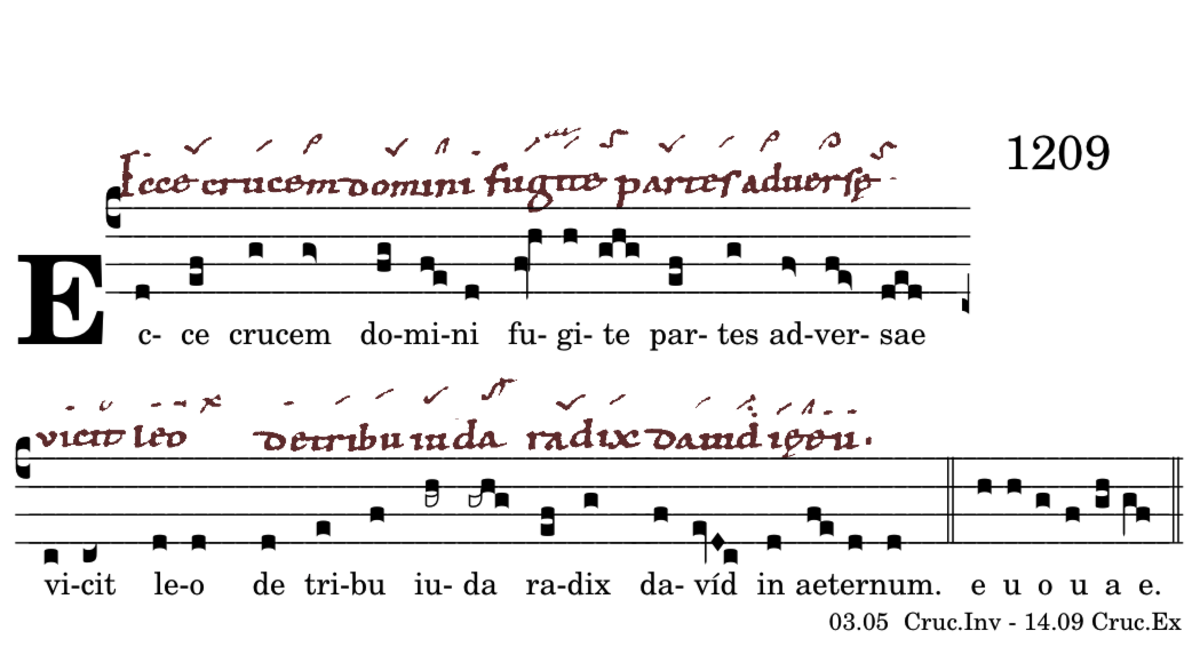🔘 IN GR TR AL OF CO xxxxx ✅ 2️⃣ 0️⃣ 3️⃣ 4️⃣ 5️⃣ 6️⃣ 7️⃣ 8️⃣ xxxxx AN RP IV alia
1209 AN Ecce crucem dominiModus 1
1INC ad4 +
FML PeCl, breitet das Wort „dómini“ aus.
1FML quia „fúgite“
3syll + nkTorculus
1TER de5 zweimal TrcFIN Wortendetorculus, aber nkTrc.
1TER de5 „fugite parte adversae“ variiert: Clivis und Torculus statt Tractuli „re+re“ zerstören nicht die Schlusswirkung, öffnen aber nichts desto trotz die Erwartung auf das Folgende: „vicit leo“ Im Gegensatz zu Bachs Johannespassion „Der Held von Juda siegt mit Macht“ wird hier der Text völlig unterkühlt gebracht: „vicit leo“.
1NOV cad ad4 aber
INC ad1 eröffnet. Das „vicit leo“ ist völlig zurückgenommen.
1TER de5, wegen des zugefügten Wortes „in aeternum“ umgewandelt in
1TER v.add “da-víd“ Virga + Climacus. Die beiden Clives des Cento sind in Virga und Climascus umgewandelt, die Endbetonung des Namens „davíd“ hörbar zu machen.
● Siehe, flieht in alle Richtungen vor dem Kreuz des Herrn,
es siegt der Löwe aus dem Stamm Juda, aus dem Geschlecht Davids in Ewigkeit.
● Behold, flee in all directions before the cross of the Lord,
the Lion of the tribe of Judah, of the lineage of David, will triumph forever.
1INC ad4 +
FML PeCl, spreads the word „dómini“.
1FML quia „fúgite“
3syll + nkTorculus
1TER de5 twice TrcFIN word tetorculus, but nkTrc.
1TER de5 „fugite parte adversae“ varies: Clivis and torculus instead of tractuli „re+re“ do not destroy the final effect, but nonetheless open up the expectation of what follows: „vicit leo“ In contrast to Bach's St John Passion „Der Held von Juda siegt mit Macht“, here the text is brought in completely undercooled: „vicit leo“.
1NOV cad ad4 but
INC ad1 opened. The „vicit leo“ is completely withdrawn.
1TER de5, converted to
because of the added word „in aeternum“.
1TER v.add „da-víd“ Virga + Climacus. The two clives of cento are transformed into virga and climascus to make the final accent of the name „davíd“ audible.
